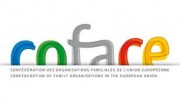Diagnostic tests for women with autism fall short
Extract from article by Ann Griswold on Spectrum website on 11 March 201:
Women with autism show fewer repetitive behaviors than men with the condition on a standard diagnostic test. This difference may lead to a ‘partial’ diagnosis for many women, qualifying them for only limited services, according to the largest study of adults with autism to date.
Clinicians may diagnose just 1 girl with autism for every 10 boys in children of average intelligence, and her diagnosis may be years overdue, according to some reports. Most diagnostic assessments are based on research in boys with autism and may be biased toward behaviors typically seen in these boys. So it is unclear whether fewer girls have autism, or whether the features of autism in girls and women are simply distinct and harder to recognize.
Either way, girls who go undiagnosed in childhood may find it difficult to obtain an autism diagnosis later, suggest the new findings, which appeared 22 January in Autism. (See below)
A primary reason for this difficulty may be that women don’t show repetitive behaviors and restricted interests — or don’t show them in a way that is obvious to caregivers or clinicians.
“The most striking thing is the difference in repetitive behaviors between males and females,” says Grainne McAlonan, clinical reader in translational neurodevelopment at Kings College London and a senior researcher on the study. “That may have an impact on the way we recognize autism in females, and consequently whether those females get access to services.”
The study points to the possibility that women and men with autism present differently and may benefit from diagnostic tools that take gender differences into account….
Read the full article: https://spectrumnews.org/news/diagnostic-tests-for-women-with-autism-fall-short/
References:
Wilson C.E. et al. Autism Epub ahead of print (2016) Pubmed
Harrop C. et al. Autism Epub ahead of print (2016) Pubmed


 Article in DisabilityScoop by Shaun Heasley, March 14, 2016 -
Article in DisabilityScoop by Shaun Heasley, March 14, 2016 -  Inclusion Europe has partnered with its Portuguese national member Fenacerci to run an engaging event that will address Inclusive Education and the role of families in the promotion and implementation of an inclusive school.
Inclusion Europe has partnered with its Portuguese national member Fenacerci to run an engaging event that will address Inclusive Education and the role of families in the promotion and implementation of an inclusive school. COFACE, the Confederation of Family Organisations in the European Union, in cooperation with the UN Focal Point on the Family Division (for Social Policy and Development, Department of Economic and Social Affairs), is organising an international conference on the Sustainable Development Goals (SDGs).
COFACE, the Confederation of Family Organisations in the European Union, in cooperation with the UN Focal Point on the Family Division (for Social Policy and Development, Department of Economic and Social Affairs), is organising an international conference on the Sustainable Development Goals (SDGs).